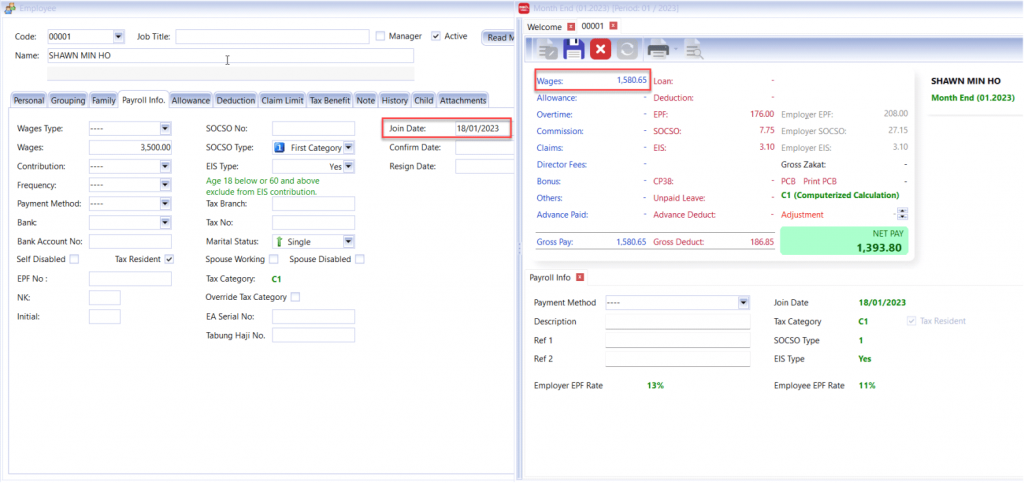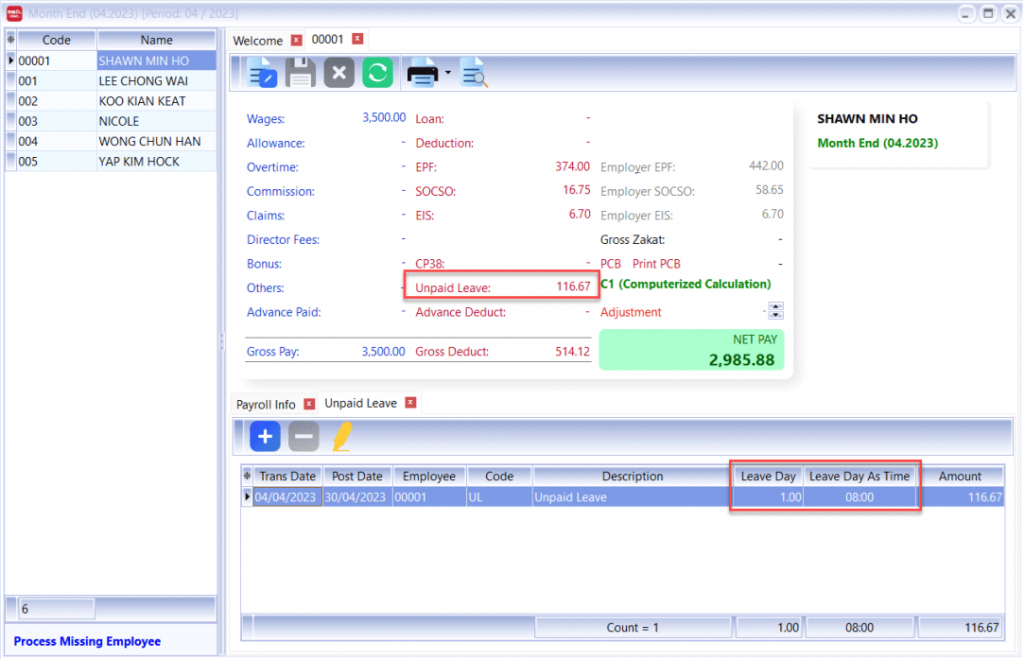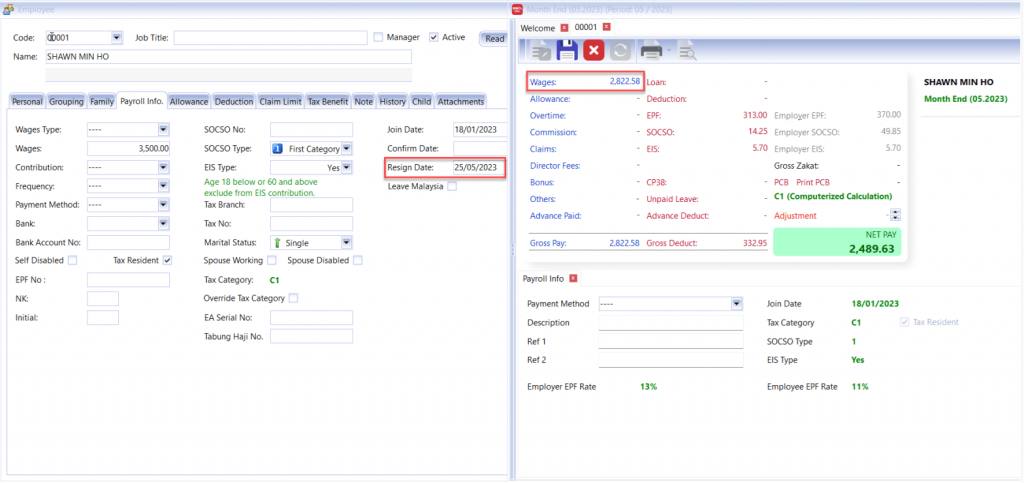
Salary Calculation Malaysia
This article will provide a guideline on how to calculate salaries per day in Malaysia, along with tips to ensure compliance with relevant laws and regulations.
What is the Minimum Salary in Malaysia?
Before diving into the specifics of how to calculate salary per day, the first thing to understand is that the minimum wage in Malaysia is determined by the government and is reviewed annually. As of 2022, the minimum wage in Malaysia is RM 1,500 per month.
Employer with 5 or more employees
According to the Minimum Wage Order (MWO) 2022, the minimum wage for all employees in Malaysia will be raised to RM1,500 effective on May 1, 2022. This increase applies to all sectors employers with or more than 5 employees.
Employer below 5 employees
To assist small businesses in coping with economic and financial difficulties in 2023, the Malaysian government has postponed the enforcement of the RM1,500 minimum wage for small businesses with less than five employees from January 1, 2023, to July 1, 2023.
How to calculate salary per day in Malaysia?
Calculation of wages for incomplete month's work
The following section explain the formula for computing wages of an employees who works for less than a full month due to various circumstances, such as starting work after the first day of the month, terminating employment before the end of the month, taking unpaid leave for one or more days.
To calculate salary per day in Malaysia, it is necessary to comply with the regulations stated in the Employment Act as below:
We have included a few examples below to help you better understand how salary per day is calculated.
Example 1:
Staff A, with a monthly wage of RM 3500, joined on January 18th
The computation of the basic salary for the month of January is as follows:
As a result, staff A’s salary for January will be RM 1580.65.
SQL Payroll users can take full advantage of our system by simply inputting the join date for each employee into the database. Our software automates the calculation of monthly wages according to the latest labor laws. By utilizing SQL Payroll, you can save time and effort while ensuring the accuracy and compliance of your payroll records.
Example 2:
Staff A takes an unpaid leave on April 4th
The calculation of the unpaid leave is as follow:
As a result, RM 116.67 will be deducted from Staff A’s salary for one day of unpaid leave during the month of April
With SQL Payroll system, you can easily track and calculate unpaid leave by recording the number of days an employee takes off. Our software automatically calculates the unpaid leave amount, which can be broken down into small unit such as half day, one hour, or even down to the minute. This feature is especially useful for businesses that need to deduct unpaid leave due to lateness, as it allows for precise tracking and calculation of the corresponding deductions
Example 3:
Staff A, resigned on 25 May
Staff A will receive RM 2822.58 for the month of May due to his resignation before the end of the month.
By inputting the resignation date, SQL Payroll automatically calculates their salary for the month, up until the date of resignation. This feature not only saves time but also eliminates the need for manual calculations, ensuring accurate payroll records.
📢 Attention business owners & Payroll HR! 🔊
Don’t put your company at risk of heavy penalties due to miscalculations or incorrect submissions of statutory contributions such as EPF, SOCSO, PCB, EIS, and HRDF compliance.
With our affordable and easy-to-use SQL Payroll system, you can rest assured that your payroll will comply with the latest government rules and regulations. We take care of everything from salary calculation to compliance and submission, including important submission like CP 22, CP22A, CP21, PCB Audit, EA Form, and Borang E. By using SQL Payroll system, you can eliminate the risk and hassle of manual payroll processing and ensure accuracy and compliance in your payroll records.
Don't let manual payroll put your company at risk - Get a FREE Demo or Free trial today!
SQL Payroll software Favoured Features

Certified by Statutory bodies & 100% accurate

electronic submission & e-Payment ready

Batch email payslip

Comprehensive management reports

Unlimited year records









